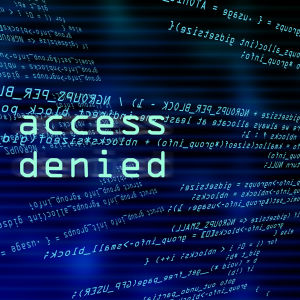In late February, “netroots” activists were successful in haranguing the Federal Communications Commission into passing sweeping regulations that placed the Internet’s private networks under direct government supervision and declared the Internet a public utility.
While publicly saying that the effort was to protect the “open Internet” and ensure “free speech” online, the regulations (known as “Title II” in bureaucratic-speak) are really about something much more sinister: Establishing more political control over the Internet — our 21st-century printing press — in order to regulate speech that a small group of radical progressives on the left don’t particularly like.
Free Press, a particularly noisy Internet grievance lobby, typifies how the phony Internet openness crowd has leveraged the “free speech” argument in truly Orwellian doublespeak fashion to justify net neutrality while at the same time undermining the principle of free speech at every opportunity.
Indeed, the group’s founder, Robert McChesney, has an altogether curious vision of “free speech” and a “free press,” viewing them as part of a larger “revolutionary program to overthrow the capitalist system itself.”
In 2007, Free Press commissioned a white paper calling for FCC regulation of political talk radio because it was too conservative. The group’s main bone of contention appeared to be that liberal talk radio (Air America, Jim Hightower, Mario Cuomo) were yawners with the American public, so Free Press pushed for a Fairness Doctrine-like solution; government regulation of fairness by requiring conflicting views.
Free Press’ general counsel Marvin Ammori piled on two years later with a 2009 white paper arguing that while net neutrality should apply to everyone else, government itself “need not be neutral regarding speech and can promote particular classes of content” including, ominously, “political content.”
In a crowning blow to Free Press’ phony free speech cred, Ammori even argued that occasionally “judges may feel the need to put a finger on the scale of regulation” to do things like promote political content.
Presente.org is another Title II supporter that has a troubled relationship with the concept of free speech. The group is run out of a San Francisco operation called Citizen Engagement Lab founded by MoveOn activists. Even fellow lefty progressives label the CEL outfit as “ethically dubious.”
Presente.org sent emails to Latinos last year arguing that if the Internet wasn’t classified as a public utility pronto, we could all “kiss free speech goodbye.” Not even a year later they are now urging their members to sign a petition calling on the attorney general of the United States immediately to arrest and prosecute a presidential candidate — Donald Trump — for creating a “hostile and violent” environment for Latinos and being “hateful” and “dangerous.” In other words, they don’t much countenance his right to free speech.
Color of Change, another grievance group in the CEL constellation, argued that unless the Internet was treated as a public utility, corporate gatekeepers would “block, slow down and choose which voices are heard.”
Color of Change, it appears, wants a monopoly on the blocking, slowing down and choosing. The group’s website includes dozens of petition campaigns demanding that advertisers pull down billboards, yank broadcasters and commentators they disagree with off the air, and even force neutral Internet fundraising platforms to disappear online crowd funding campaigns Color of Change opposes.
Black Lives Matter pays lip service to Internet regs as well, supposedly to ensure “no voices are discriminated against” or “censored.” Then without a hint of irony, the group heckles and shouts down the two candidates for president probably most supportive of its cause for not being sufficiently deferential and pandering to BLM talking points.
“It’s not like we like shutting s—t down,” they say, not even stopping to ponder the logical inconsistency of its supposedly anti-censorship views.
Put simply, the cognitive dissonance between what the social justice warriors and radical progressives that make up the net neutrality crowd say they want to protect (free speech) versus what they actually do (suppress opposing speech) is deafening.
That’s because Title II was never about free speech or openness in the first place. It was always about crafting Internet policy for Machiavellian political reasons — to give the progressive left maximum leverage to disseminate their ideas, while maximally constraining the ability of anyone they disagree with to do likewise.
The corrupted evolutionary path between the fairness doctrine of old that mandated all views must receive equal airing and today’s “safe spaces” ridiculousness where all opposition speech is branded as “hateful” and only approved views are allowed to be aired before the progressive hive mind is the left’s end game.
And that’s what the Title II debate was always about. “Free speech” for them while clamping down on the speech of everyone they disagree with. Last week, oral arguments in the D.C. Circuit Court case challenging the Title II rules concluded.
The fundamental misunderstanding many make is not over basic net neutrality rules, which most sides agree on, it’s the FCC’s jurisdiction in classifying broadband as a government regulated public utility. In other words, it’s about political control of our 21st-century printing press. Pure and simple.

